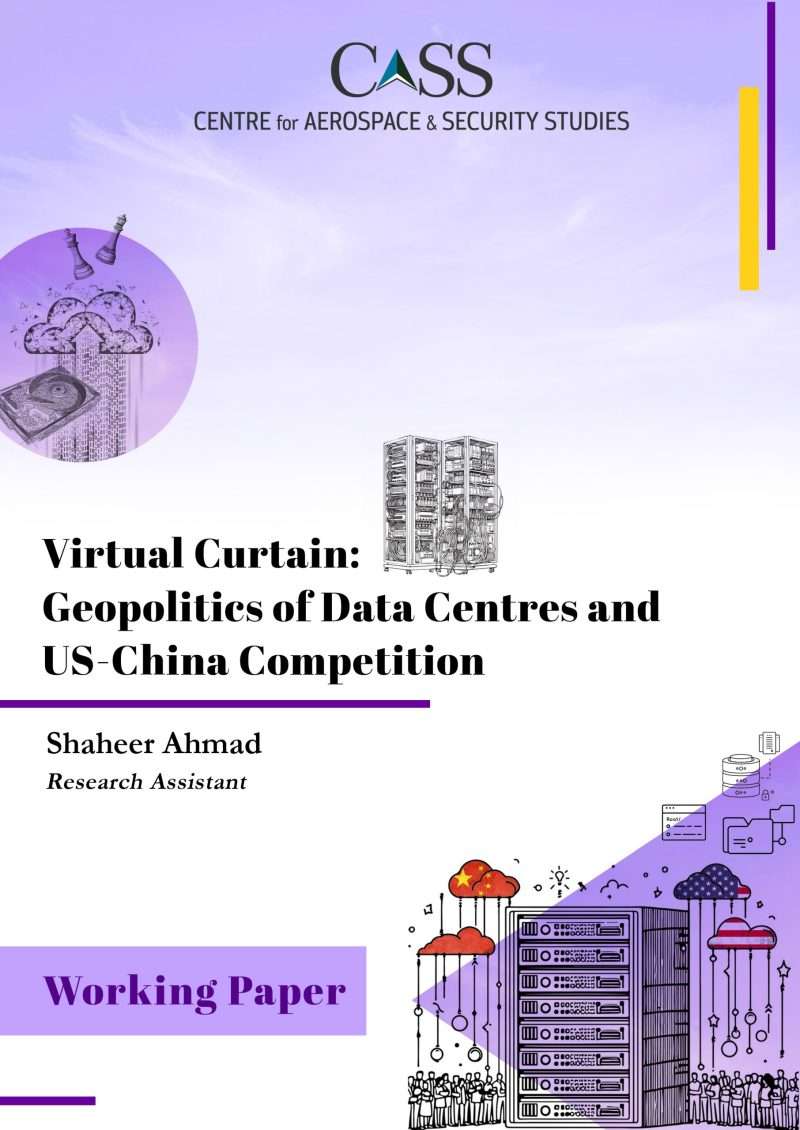To date, the discourse on techno-politics has largely centred on semiconductor fabrication plants in Taiwan, lithographic innovations of the Netherlands, and critical mineral reserves, such as cobalt and lithium, across Africa. However, the next phase of this geopolitical contest is increasingly being shaped by the importance of data centres: the digital fortresses that power the computational demands of Artificial Intelligence and Machine Learning. With data emerging as the new currency of power, geopolitics of data infrastructure is set to shape the contours of global influence with the United States and China, both vying to lead the next technological revolution. This paper explores the growing significance of data centres, the strategic motivations of major powers, and geocentric challenges that accompany this competition. It argues that, much like earlier industrial revolutions, control over data infrastructure will be a decisive factor in determining geopolitical dominance in the coming age of advanced technologies.

Share this article

The Extraction Trap
Trump’s declaration to “run Venezuela” after Maduro’s capture is a seeming promise of a sudden cure to Venezuela’s ills. However, it ignores the nation’s terminal diagnosis of a century of plunder. The rhetoric of imminent revival on the basis of the speedy return of international oil capital and the promise of 100 billion US dollars in reconstruction funds made the intervention seem like a unique opportunity.

Future Shield: The Saudi-Pakistan Security Partnership
Although the SDMA does not identify an adversary, effectively functioning as a deterrent, it cannot be viewed in isolation from the Israeli belligerence in the Middle East. Israel’s war against Hamas has expanded beyond the genocide of Gaza; it has bombed the West Bank, Lebanon, Syria, Yemen, Iran, and recently Qatar. Tel Aviv’s campaign under the banners of ‘anti-Semitism’ and ‘terrorism’ has engulfed the whole Middle East in a war-like situation, which has generated new enemies and has deepened the instability of the region.

The Trilateral Shift
On 15 January 2026, the Pakistani defence production minister confirmed that an agreement for a new trilateral defence deal between Pakistan, Saudi Arabia, and Türkiye is in the pipeline, other than the Pakistan-Saudi bilateral deal announced last year.

